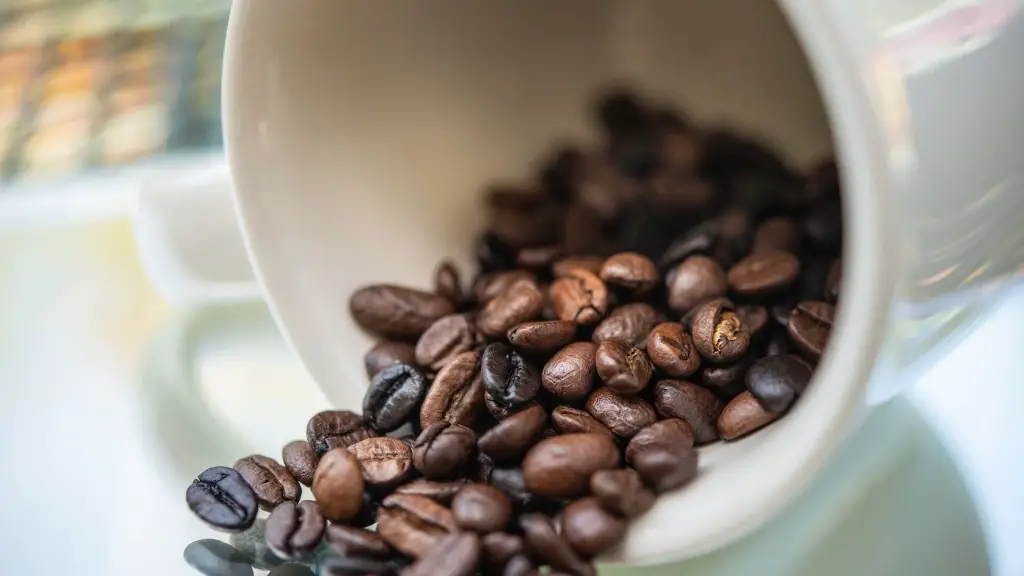Does coffee have any impact on kidneys? Can individuals with certain kidney issues safely drink coffee? This article delves into the subject to gain a better understanding of the effects of coffee on kidney health.
The human body’s kidneys are crucial for the filtering and expulsion of waste materials. Generally, an individual should drink no more than two to three cups of coffee a day as excess consumption can overload the kidneys with toxins. This is because coffee is a diuretic, meaning it increases urine production and flushes out fluids from the body that are important for a healthy kidney system. It also contains high levels of caffeine and acidic compounds, which can be further damaging for kidney problems.
Research has shown that individuals with some forms of kidney ailments, such as acute and chronic glomerulonephritis, polycystic kidney disease, kidney infection, and polycystic kidney syndrome, are especially susceptible to the effects of coffee consumption. Moreover, individuals with kidney stones should be particularly prudent when it comes to drinking coffee as it may increase the risk of stone formation.
Experts suggest that those with kidney problems should limit their coffee intake to one to two cups a day. Additionally, they advise avoiding drinks with high amounts of sugar, cream, and artificial sweeteners that can aggravate existing kidney conditions. Alternatively, those with persistent kidney issues can switch to a decaffeinated version of coffee.
It is important to be aware of the fact that coffee isn’t the only beverage that can impact kidney health. Other drinks, such as sodas and alcoholic beverages, can also cause adverse effects. Sodas contain high levels of caffeine and are often stocked with unhealthy amounts of sugar. Alcohol, on the other hand, can cause dehydration and further hinder the kidney’s efficiency at filtering out toxins.
That being said, coffee isn’t necessarily bad for kidney health. Studies have shown that moderate coffee consumption might reduce the risk of chronic kidney disease, including end-stage renal disease. Additionally, it has been found that coffee can lower blood pressure, reduce inflammation, and protect against certain types of cancer.
Foremost Factors in Drinking Coffee With Kidney Issues
It is evident that certain individuals with kidney illnesses should take extra precautions when drinking coffee. But, what are some key aspects worth considering when consuming coffee with kidney issues?
It is essential to assess how much coffee one is drinking on a regular basis. Studies have shown that drinking more than three cups of coffee a day increases the risk of kidney issues for people who suffer from pre-existing kidney diseases. Furthermore, individuals with kidney ailments should be mindful of what type of coffee they are drinking.
The best way to drink coffee with kidney issues is to look for a low-acid version. As mentioned before, coffee is acidic and thus, can be harmful to the kidneys. Coffee that has been cold- or nitro-brewed are typically lower in acidity than traditional and espresso varieties. Additionally, individuals can opt for decaffeinated versions of their favorite blends.
Takeaways
Given the right conditions, drinking coffee with kidney issues can be safe. However, it is best to consult one’s doctor beforehand to determine whether or not one should curtail their coffee intake. Individuals with kidney ailments can benefit from drinking low-acid varieties of coffee and opting for decaffeinated versions.
Moreover, it’s important to observe what other types of drinks one is consuming. Sodas, energy drinks, and alcoholic beverages can cause further damage to existing kidney issues. The bottom line is that one should limit their coffee intake, seek medical guidance and be mindful of the other drinks they consume, for a healthy kidney system.
Other Sources of Caffeine
Caffeine is not only found in coffee, but also in various other foods and beverages. It can be quite difficult to limit one’s caffeine intake as it is found in many places. Common examples of caffeine-rich items include certain energy and sports drinks, certain sodas, certain teas, certain ice creams, chocolate, and certain drugs. Moreover, caffeine can even be found in supplements.
It is worth noting that caffeine is usually concentrated in high-sugar and high-calorie items. Therefore, individuals should be wary of their intake of such items. Additionally, it may be a good idea for those individuals with kidney issues to switch to caffeine-free drinks so as to limit their exposure to the stimulant and its adverse consequences.
Coffee Alternatives
If individuals are looking for alternative drinks to coffee that are both energizing and healthy, they might turn to certain herbal teas. Green tea, for example, is rich in antioxidants, can help regulate sugar levels, and can even help promote weight loss. Similarly, oolong Tea is high in antioxidants as well as amino acids and supports good digestion.
Others may decide to switch to certain smoothies or juices. Both smoothies and juices are extremely nourishing and can be experienced in a range of flavors. Moreover, some juices have been shown to have known benefits, such as reducing inflammation and boosting the immune system.
Finally, other individuals may opt for non-caffeinated versions of coffee, such as chicory and dandelion root coffee, or just simply switch to hot water with lemon. Hot water with lemon has numerous benefits and is extremely energizing. It helps to cleanse the body of toxins, aids in digestion, and can even boost overall immunity.
Managing Side Effects
Sometimes, drinking coffee with kidney issues can result in some uncomfortable side effects. Nausea, for example, is a common side effect experienced by individuals with kidney issues who drink coffee. Therefore, it’s important to be aware of the signs and manage any uncomfortable side effects accordingly.
One way to manage nausea after drinking coffee is to drink water. Water helps to keep the body hydrated and can help relieve uncomfortable symptoms such as nausea. Additionally, individuals can opt to eat a light snack such as crackers or toast to help settle their stomach. It is also especially important to take the time to drink and digest coffee slowly, as this will help prevent any further discomfort.
Moreover, individuals should be mindful of their dietary and lifestyle habits. Eating a healthy and balanced diet can help to reduce the symptoms of nausea and improve overall kidney health. Additionally, it is important to exercise and manage stress levels, as this can also help alleviate uncomfortable side effects.
Conclusion
In conclusion, individuals with kidney issues should take extra precautions when consuming coffee. Limiting one’s intake, seeking medical advice, and being aware of the other drinks they are consuming are all key aspects to consider. Additionally, individuals can switch to lower-acid, decaffeinated versions of coffee, as well as different energizing beverages such as herbal teas, smoothies, and juices. Moreover, it is essential to be aware of the signs of side effects and manage them accordingly.





